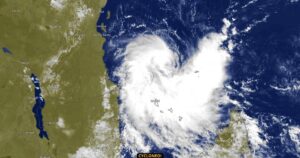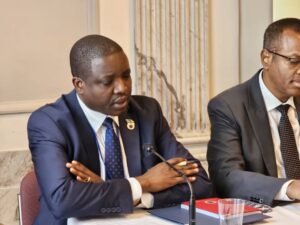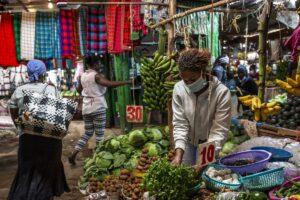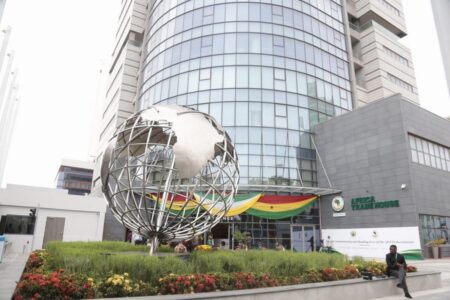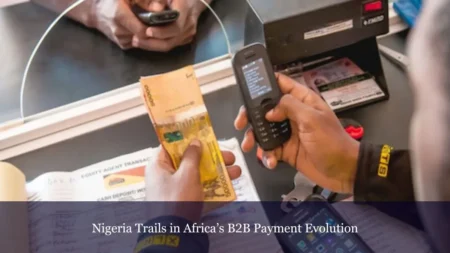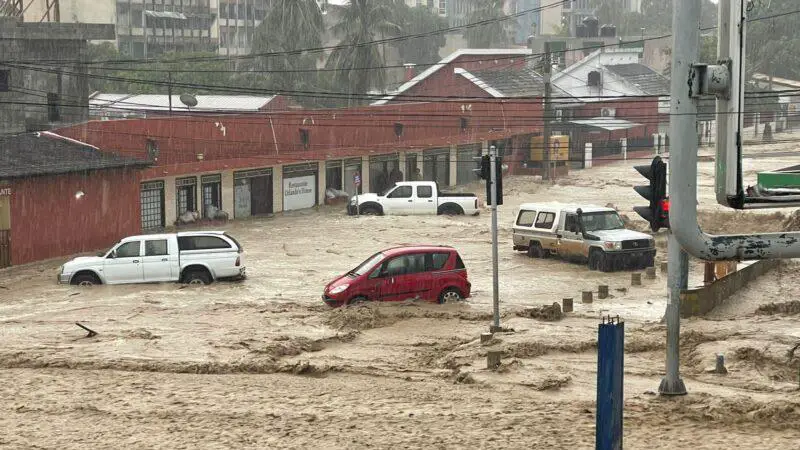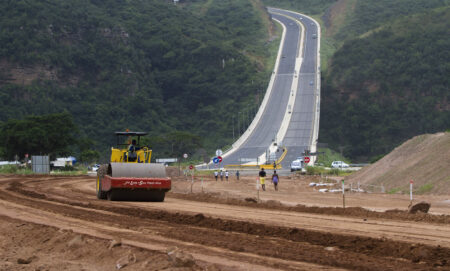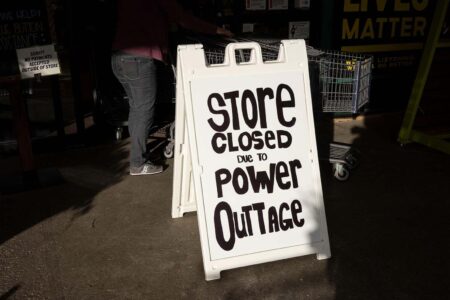- Kenya, Tanzania braces for torrential floods as Cyclone Hidaya approaches
- EAC monetary affairs committee to discuss single currency progress in Juba talks
- Transport and food prices drive down Kenya’s inflation to 5% in April
- Payment for ransomware attacks increase by 500 per cent in one year
- History beckons as push for Kenya’s President Ruto to address US Congress gathers pace
- IMF’s Sub-Saharan Africa economic forecast shows 1.2 percent GDP growth
- The US Congress proposes extending Agoa to 2041, covering all African countries
- Millions at risk of famine as fuel tax row halts UN aid operations in South Sudan
Browsing: South Africa
- Aggressive marketing campaigns targeting the younger demographic are significantly driving the choice of drinks.
- Health consciousness is not just a buzzword; it’s a lifestyle shift that’s influencing the beverage market.
- The influence of social media and global trends have heightened consumer awareness of new products and flavours.
Innovation and cultural heritage intersect as Africa’s beverage market evolves in response to shifting consumer tastes and socio-economic currents.
From the cherished rituals of traditional tea and coffee to the burgeoning popularity of carbonated soft drinks and fruit juices, Africa’s beverage market is evolving, reflecting its diverse society and changing preferences.
The Middle East and Africa Functional Beverage Market Size & Share Analysis – Growth Trends & Forecasts (2023 – 2028) report captures this dynamic evolution. It underlines key trends that are reshaping the way Africans quench their thirst.
Health benefits influencing Africa’s beverage market
One significant trend driving the beverage scene is …
The African Continental Free Trade Area (AfCFTA) has presented a distinctive opportunity to bolster economic growth, alleviate poverty, and decrease Africa’s reliance on volatile commodity cycles. According to a World Bank report from 2020, the AfCFTA can increase the continent’s income by 7 per cent by 2035 and elevate around 40 million individuals out of extreme poverty. This positive impact is primarily attributed to the stimulation of intraregional trade, termed the “AfCFTA trade scenario” for this analysis.…
The BRICS countries bear a profound responsibility amid a shifting global economic axis. They have the extraordinary chance to reshape the world order, bestowing more significant equity and amplified voice upon the realms of the Global South.
A defining moment in the global economic axis awaits as the BRICS Summit 2023 gathers in South Africa. It signals the member countries to seize this opportunity to shape an unprecedented global economic governance system, an inclusive, all-encompassing, and efficient system.…
- Nigeria received $1.2 billion in 2022 to fund and support fintech-based startups.
- South Africa led in electronic bank transfers, with 49.1% of respondents selecting their preferred payment methods.
- Kenya took the lead on the best payment automation stem, with 83.4% stating that their B2B payment systems were semi-automatic or fully automatic.
Within the past decade, the world economy has revolutionized into a more digital era. The technological progress of the continent is attributed to the rising technologies, ushering in the fourth industrial revolution. Among these emerging markets is Africa’s fastest and most lucrative economic activity; Fintech.
Africa’s fintech industry has grown exponentially over the past two decades. The endeavours of entrepreneurs and innovators have fueled a new approach to traditional financial systems. Essentially, it has ushered in a new B2B payment system that is reliable, scalable, available and faster.
This new trend met high enthusiasm from several countries within the …
- South Africa has just 18 months to show that it has an effective anti-money laundering (AML) policy.
- The government estimates that between $2 billion and $8.3 billion is laundered annually through local financial institutions.
- Banks in South Africa must find a new way to prove identity to prevent money laundering and cyberattacks.
South Africa has just 18 months to show that it has an effective anti-money laundering (AML) policy, an undertaking that banks can help to rescue the country from the grey list. In January 2025, the global anti-money laundering watchdog, the Financial Action Task Force will review its decision to greylist South Africa. The agency will interrogate the public and private sector measures taken by the country to address its concerns.
The nation will have to present a workable, scalable plan to stop fraud, money laundering, and other financial crimes. Failure to do so will have severe negative economic …
- A new platform dubbed inDrive.Freight will allow users to send parcels with the cost of delivery negotiated with the driver.
- Customers will send parcels of up to 20,000kg to one another.
- The platform will also allow users to receive or send non-liquid items via in-city routes in Cape Town and Jo’burg.
E-hailing platform inDrive, best known for allowing customers to negotiate prices with drivers, looks set to tap into South Africa’s freight market. The move follows the introduction of bargain-your-ride e-hailing service in the country.
The new platform dubbed inDrive.Freight will allow users to send parcels with the cost of delivery negotiated with the driver. With offerings ranging from compact cars for smaller parcels, to large trucks suitable for moving or business requirements, customers will send parcels of up to 20,000kg to one another.
The platform will also allow users to receive or send non-liquid items via in-city routes, …
- Civil unrest, electricity crisis and natural disasters in South Africa deal a body blow to the regional economy growth prospects.
- The 2023 Southern Africa Economic Outlook indicates that the Southern Africa region’s GDP growth barely reached 2.7 percent. This level is much lower than global and African averages of 3.4 percent and 3.8 percent respectively.
- According to the African Development Bank, Southern Africa region is now lagging behind its peers across the continent.
The Southern Africa zone has continued to experience a slowdown in economic growth in the past year largely driven by increasing challenges in regional powerhouse South Africa.
The south-most country on the continent has seen civil unrest, electricity crisis and natural disasters worsen the region’s economic slowdown. Neighbouring Zimbabwe, Zambia, Malawi, Madagascar, and São Tomé and Príncipe, have also experienced intense adverse weather events.
According to a report by the African Development Bank, climate change-related crisis has …
- South Africa says Russian President Vladimir Putin will skip planned BRICS summit in Johannesburg in August.
- Since he was charged with war crimes by the ICC in March for kidnapping children from Ukraine, Putin has avoided travelling.
- On July 15, Putin talked with Ramaphosa on BRICS and the status of the Black Sea grain deal.
South Africa says Russian President Vladimir Putin will skip planned BRICS summit in Johannesburg next month because of his ICC arrest warrant. South Africa, which was facing a major diplomatic challenge on whether to arrest Putin, says it has requested the Russian President to stay away from the summit.
Putin was charged with war crimes by the ICC in March for the kidnapping of children from Ukraine. Since then, Putin has been avoiding travelling to all nations that are party to the court’s treaty.
Following a “mutual agreement,” the office of South African President Cyril …
Population growth and economic development have necessitated speeding up and scaling up infrastructure development in Africa. Over 28 African nations have seen population growth of more than double in the last 30 years. The population of 26 other African countries will quadruple over the next 30 years. Consequently, funding for the continent’s infrastructure has become essential.…
- Energy experts project that South Africa requires injection of no less than 6,000MW to keep industry lights on.
- The country’s severe power crisis is expected to persist until 2025. Experts say a five-year timeline is needed to overcome power outages.
- This year’s GDP will further decline to 1.2% from 2.3% in 2022, and there is a 45% chance of recession largely due to electricity crisis.
An ominous cloud hangs over South Africa economy, which dodged recession in the three months to March, as experts say the roiling electricity crisis will persist until 2025. As if that is not enough bad news to the industry, it will take about five years to eliminate power outages in the country.
Currently, South Africa is paying a huge price following utility, Eskom’s overreliance on ailing coal power plants to supply electricity. These coal power plants account for over three quarters of South Africa’s electricity …
